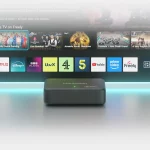The UK Top 7 Fastest Big Fixed Line Home Broadband ISPs – March 2014

The average home broadband ISP download speeds for the largest seven Internet access providers in the United Kingdom managed to reach 20.94Mbps in March 2014, while uploads hit 4.79Mbps. As usual BT and Virgin Media continued to hold the top spots for downstream performance.
It’s very important to highlight that there’s been a big change this month because we’ve decided to experiment by using Ookla’s data from Speedtest.net for our monthly summaries. In the future this will allow us to expand and cover more ISPs but for this month we’ll retain a little consistency by focusing upon only the largest mainstream providers (TOP 10), although for a comparison we’ve added Zen Internet into the mix.
Advertisement
Top 7 Big UK ISPs – Average Download Speed (Megabits per second)
1. Virgin Media – 42.60Mbps
2. BT – 25.41Mbps
3. PlusNet – 21.16Mbps
4. Zen Internet – 20.15Mbps
5. TalkTalk – 12.65Mbps
6. Sky Broadband – 12.38Mbps
7. EE – 12.27MbpsTop 7 Big UK ISPs – Average Upload Speed
1. BT – 7.44Mbps
2. PlusNet – 6.51Mbps
3. Zen Internet – 6.15Mbps
4. Virgin Media – 4.91Mbps
5. Sky Broadband – 3.29Mbps
6. EE (Orange) – 2.94Mbps
7. TalkTalk – 2.29Mbps
Please take anecdotal data like this with a big pinch of salt. Every home is different and performance can be affected by all sorts of issues, many of which are beyond the ISPs ability to control (e.g. slow wifi or poor home wiring). We do not consider the above data to be a reliable barometer for individual users but it can help to highlight general changes in the market.
In addition, Ookla’s data attempts to reflect the fastest sustainable throughput performance by dropping a large chunk of the slowest and a smaller slice of the fastest results for each ISP. This may be useful for certain comparisons but it can also skew the results, especially since slower connections tend to exist in rural areas. The impact is most noticeable for upstream speeds, which we believe to be too high (we might not use their data for upstream in the future).
On top of that not everybody takes the fastest speed available from their ISP and the latest “super-fast” connections (FTTC, FTTP etc.) can have a disproportionate impact compared with the older and slower copper ADSL2+ lines etc.
Mark is a professional technology writer, IT consultant and computer engineer from Dorset (England), he also founded ISPreview in 1999 and enjoys analysing the latest telecoms and broadband developments. Find me on X (Twitter), Mastodon, Facebook, BlueSky, Threads.net and Linkedin.
« Keycom and Vision Fibre Media Bring 1Gbps Broadband to Homes in Chelsea






















































Comments are closed